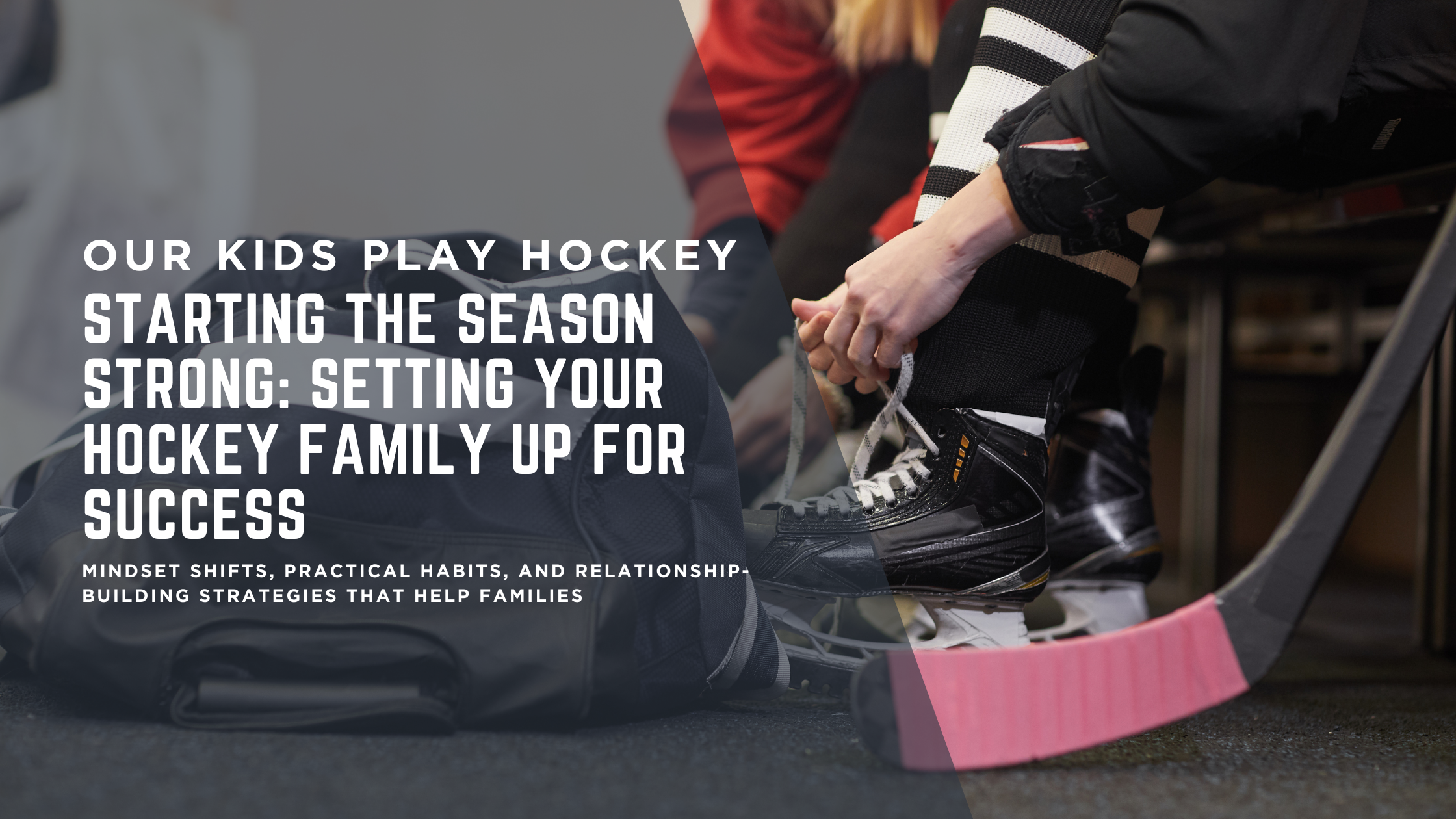Starting the Season Strong: Setting Your Hockey Family Up for Success

The puck is about to drop on another hockey season, and whether your child is a returning player or lacing up for a new team, those first few weeks can set the tone for everything that follows. In this episode of Our Kids Play Hockey, Lee Elias and Mike Bonelli share the mindset shifts, practical habits, and relationship-building strategies that help families not just survive the season opener—but thrive all year long.
1. Avoid the Early-Season Mindset Traps
The beginning of the season often brings unnecessary pressure:
Over-scheduling (too many games, too many activities)
Comparing players (your child vs. others)
Wanting to “peak” too soon (forgetting the season is a marathon)
Instead, adopt a growth mindset. The player your child is in September should not be the player they are in March—improvement is the goal.
Pro Tip: Don’t lock your child into a perceived “role” right away. Give teammates time to gel, adjust, and discover their chemistry.
2. Encourage Player–Coach Communication
One of the best things young players can do is ask their coach directly:
“What role do you see me in?”
“What can I improve this season?”
For players under 12, parents can help prep them for the conversation but shouldn’t lead it. Above all—parents, resist the urge to talk to the coach about ice time, line combinations, or strategy. Unless there’s an issue of safety or bullying, let the kids advocate for themselves.
3. Focus on Team Building Before Tactics
Those first 2–4 weeks aren’t about winning championships—they’re about:
Team chemistry
Skill reacquisition after summer
Establishing on- and off-ice habits
Skipping this “bonding and habits” stage can lead to a rocky season later. Even elite teams use early weeks for culture building.
4. Help Your Child Enter the Season with Confidence
Parents can ease nerves and avoid early-season drama by:
Over-communicating scheduling conflicts early
Encouraging veteran players to welcome new teammates
Practicing introductions and conversation skills at home
Coaching kids to make a positive first impression in the locker room
5. Watch for Red Flags—But Do a Self-Check First
If things feel “off” early (toxic culture, anxiety, lack of chemistry):
Make sure your child isn’t unintentionally part of the problem.
Address safety, hazing, or bullying concerns immediately.
Separate temporary rough patches from systemic issues.
6. Build Strong Habits and Routines
Small routines make a big difference:
Sleep: Transition from summer late nights before the season starts.
Nutrition: Fuel for practices and games.
Equipment checks: Fit, safety, and readiness.
Calendar planning: A visible family schedule helps everyone stay on track.
Self-prep: Encourage kids to pack their own gear and plan departure times.
7. Learn From Last Year—But Don’t Live There
Whether last season was a disaster or a championship run, wipe the slate clean. Yesterday’s results—good or bad—won’t win today’s games.
As Mike puts it, “Momentum can’t carry you day in and day out. You have to create a new mindset each season.”
8. Keep Fun at the Core
Early-season fun isn’t about slacking—it’s about loving the work together. Off-ice activities, team traditions, and even tough practices can be enjoyable when players feel connected.
When kids know their coaches and teammates care, they’re more motivated, resilient, and willing to “embrace the suck” during hard work.
Final Word:
Start the season strong by focusing on mindset, relationships, and routines—not just wins and losses. Create an environment where your child is excited to show up, contribute, and grow. Hockey is a long season—enjoy the journey as much as the destination.
Want more season-starting tips? Share this with your team’s group chat, and send us your questions at team@ourkidsplayhockey.com. We love building episodes from your real-life challenges.


